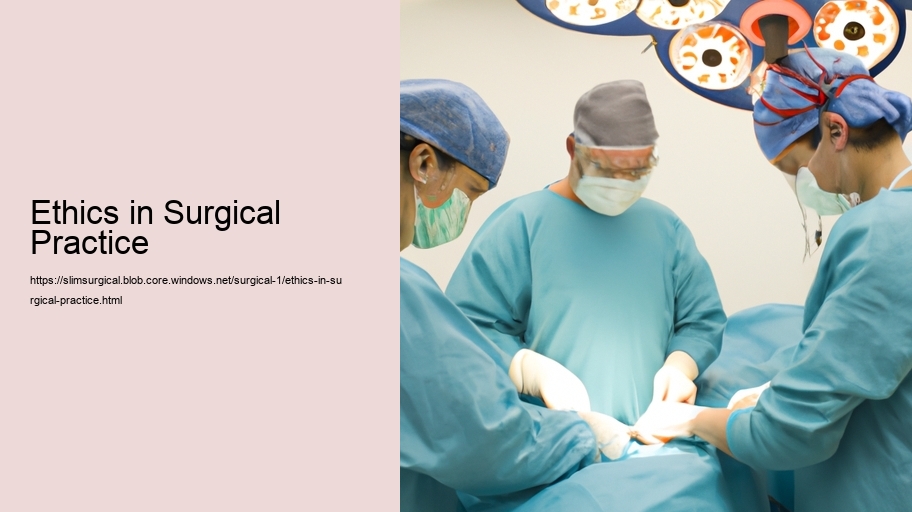Ethics in Surgical Practice: Navigating the Delicate Balance of the Operating Room
Surgical practice is not merely a technical field; it is a complex tapestry woven with the threads of human interactions, decision-making, and moral considerations. At its core, ethics in surgical practice demands a delicate balancing act between the surgeon's skill and knowledge and the patient's autonomy, well-being, and dignity. It is a realm where the precision of a scalpel's edge meets the nebulous contours of ethical reasoning.
The fundamental ethical principles that guide surgical practice include respect for autonomy, beneficence, non-maleficence, and justice. Autonomy acknowledges the patient's right to make informed decisions about their own body and treatment. It necessitates that surgeons provide clear, comprehensive information and support patients in understanding their options without coercion. The principle of autonomy is particularly salient in obtaining informed consent, a process that is not merely a formality but a substantive dialogue between the surgeon and patient.
Beneficence and non-maleficence are twin pillars that uphold the surgeon's commitment to act in the best interest of the patient. Beneficence compels the surgeon to provide care that is intended to benefit the patient, while non-maleficence reminds them to do no harm. These principles serve as the surgeon's compass during the preoperative, intraoperative, and postoperative stages, guiding decisions such as whether to operate, choosing the appropriate procedure, and managing postoperative care.
Justice, in surgical ethics, refers to the fair distribution of healthcare resources and the equitable treatment of patients. Surgeons must navigate the complexities of serving individual patients while considering the broader implications of their decisions on healthcare systems and other patients who may require similar care.
Surgical practice also confronts unique ethical challenges. The urgency and life-threatening nature of many surgical interventions can heighten the stakes, making the ethical dimensions even more critical. Surgeons often must make rapid decisions with incomplete information, balancing risks and potential outcomes. The operating room, therefore, becomes not just a theater of medicine but one of morality, where the surgeon's judgment is continuously tested.
The relationship between surgeons and their colleagues is another facet of ethics in surgery. Teamwork and communication are essential for patient safety and successful outcomes. Ethical surgical practice demands respect for the expertise of all healthcare professionals involved in patient care. Interdisciplinary collaboration, conflict resolution, and a commitment to professional development are all necessary to foster an environment of mutual respect and ethical accountability.
Moreover, the rapid advancement of surgical technologies and techniques presents new ethical dilemmas. The advent of robotic surgery, for instance, has raised questions about the learning curve for new procedures, the cost versus benefit ratio of high-tech interventions, and the potential for dehumanizing patient care. Surgeons must grapple with these issues while ensuring that innovation does not outpace the ethical considerations of its application.
Ethics in surgical practice also extends to issues of end-of-life care, where the surgeon's role may shift from curative to palliative. It involves navigating conversations about the cessation of treatment, advanced directives, and organ donation. These discussions are integral to respecting the patient's wishes and their right to a dignified death.
In conclusion, ethics in surgical practice is an ongoing journey of reflection, dialogue, and decision-making. Surgeons are not just technicians of the human body; they are moral agents whose hands bear the weight of ethical responsibility. They must cultivate a practice where skill meets compassion, where cutting-edge technology is guided by timeless moral principles, and where the sanctity of patient care is upheld amidst the complexities of modern medicine. In the dynamic and demanding environment of the operating room, ethics stands as the unwavering beacon that ensures the humanity of surgical practice remains at the heart of every incision.
